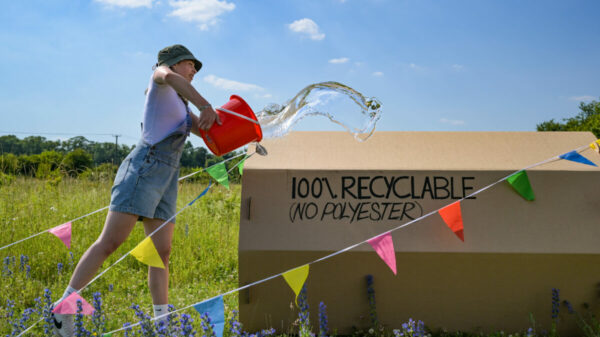Royal Mail says it has saved an estimated 2,000 tonnes of waste a year by using reusable trolley sleeves.
The savings come as the business looks to cut waste by 25% compared to the 2020/2021 base year level.
Royal Mail has replaced single-use cardboard trolley sleeves with more durable, reusable versions which it says last up to four years.
The sleeves, which were fully designed and manufactured in-house, cut waste by 10% last year, which is the equivalent of 2,000 metric tonnes.
Royal Mail’s in-house engineering team was tasked with designing a replacement for the traditional single-use fabric and cardboard trolley inserts used in mail centres and delivery offices, which would be reusable, increase capacity and more compatible with automated machinery.
Subscribe to Sustainability Beat for free
Sign up here to get the latest sustainability news sent straight to your inbox everyday
As well as improving efficiency by increasing the capacity of each trolley, the new sleeves – known as ‘Yorks’ internally – will be used up to 3,000 times over an expected lifespan of four years and are made from fully recyclable corrugated plastic, including 30 per cent recycled material, Royal Mail said.
Waste management is a key part of Royal Mail’s bid to move to net zero by 2040, aiming to reduce Scope 1 and 2 emissions by 2030 by 50%.
Royal Mail’s head of environment Zebrina Hanly, said: “We have not only met our waste reduction target, but have done so seven years ahead of schedule.
“This wouldn’t have been possible without the innovation from our engineering team as well as the hard work of our posties and wider operational staff. Our mission isn’t over, however, and we’re continuing to work hard to maintain our position as the UK’s greenest delivery option.”
Last month, it was revealed Royal Mail has used over 10 million litres of Hydrotreated Vegetable Oil (HVO) to power its heavy goods vehicle (HGV) fleet, marking its first milestone in the rollout of renewable fuel across its HGV fleet.










